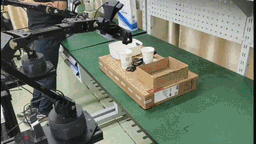【HarmonyOS 5】鸿蒙星闪NearLink详解
一、前言
鸿蒙星闪NearLink Kit 是 HarmonyOS 提供的短距离通信服务,支持星闪设备间的连接、数据交互。例如,手机可作为中心设备与外围设备(如鼠标、手写笔、智能家电、车钥匙等)通过星闪进行连接。
二、NearLink Kit 的接入与使用:
点击跳转官方文档地址

鸿蒙星闪(NearLink)的基本接入代码示例,包含设备发现、连接和数据传输的核心流程:
// NearLink设备管理服务示例
import nearlink from '@ohos.nearlink';
import nearlinkSle from '@ohos.nearlink.sle';
import common from '@ohos.app.ability.common';
// 星闪服务管理类
export class NearLinkManager {
private context: common.UIAbilityContext | undefined;
private deviceManager: nearlinkSle.SleDeviceManager | undefined;
private connectedDeviceId: string | null = null;
private dataChannel: nearlinkSle.SleDataChannel | undefined;
constructor(context: common.UIAbilityContext) {
this.context = context;
}
// 初始化星闪服务
async initNearLinkService() {
try {
// 检查并请求星闪权限
await this.checkAndRequestNearLinkPermission();
// 创建设备管理器实例
this.deviceManager = await nearlinkSle.getSleDeviceManager(this.context!);
// 注册设备状态变化监听
this.registerDeviceStateListener();
console.info('NearLink service initialized successfully');
} catch (error) {
console.error(`Failed to initialize NearLink service: ${error}`);
throw error;
}
}
// 检查并请求星闪权限
private async checkAndRequestNearLinkPermission() {
// 权限检查逻辑
// ...
}
// 开始扫描附近的星闪设备
async startDiscovery() {
if (!this.deviceManager) {
throw new Error('Device manager not initialized');
}
try {
// 配置扫描参数
const discoveryConfig = {
mode: nearlinkSle.SleDiscoveryMode.ACTIVE,
duration: 30, // 扫描持续时间(秒)
filter: {
deviceTypes: [nearlinkSle.SleDeviceType.ALL]
}
};
// 注册设备发现回调
const callback = {
onDeviceFound: (device: nearlinkSle.SleDevice) => {
console.info(`Found device: ${device.deviceName}, type: ${device.deviceType}`);
// 处理发现的设备,例如更新UI
this.onDeviceDiscovered(device);
},
onDiscoveryStateChanged: (state: number) => {
console.info(`Discovery state changed: ${state}`);
}
};
// 开始扫描
await this.deviceManager.startDiscovery(discoveryConfig, callback);
console.info('NearLink device discovery started');
} catch (error) {
console.error(`Failed to start discovery: ${error}`);
throw error;
}
}
// 处理发现的设备
private onDeviceDiscovered(device: nearlinkSle.SleDevice) {
// 这里可以添加设备过滤逻辑
// ...
// 通知UI更新设备列表
// ...
}
// 连接到指定星闪设备
async connectToDevice(deviceId: string) {
if (!this.deviceManager) {
throw new Error('Device manager not initialized');
}
try {
// 创建连接参数
const connectParams = {
timeout: 10000, // 连接超时时间(毫秒)
connectionType: nearlinkSle.SleConnectionType.DATA_CHANNEL
};
// 连接设备
const connectionResult = await this.deviceManager.connect(deviceId, connectParams);
if (connectionResult.resultCode === 0) {
this.connectedDeviceId = deviceId;
this.dataChannel = connectionResult.dataChannel;
console.info(`Connected to device: ${deviceId}`);
// 注册数据接收回调
this.registerDataReceiveListener();
} else {
console.error(`Failed to connect device, error code: ${connectionResult.resultCode}`);
throw new Error(`Connection failed: ${connectionResult.resultCode}`);
}
} catch (error) {
console.error(`Failed to connect device: ${error}`);
throw error;
}
}
// 注册数据接收监听器
private registerDataReceiveListener() {
if (!this.dataChannel) return;
this.dataChannel.on('dataReceived', (data: ArrayBuffer) => {
// 处理接收到的数据
const decoder = new TextDecoder();
const message = decoder.decode(data);
console.info(`Received data: ${message}`);
// 通知UI有新数据到达
// ...
});
}
// 发送数据到已连接设备
async sendData(message: string) {
if (!this.dataChannel) {
throw new Error('Data channel not initialized');
}
try {
const encoder = new TextEncoder();
const data = encoder.encode(message).buffer;
// 发送数据
await this.dataChannel.send(data);
console.info(`Data sent successfully: ${message}`);
} catch (error) {
console.error(`Failed to send data: ${error}`);
throw error;
}
}
// 断开与设备的连接
async disconnect() {
if (!this.deviceManager || !this.connectedDeviceId) return;
try {
await this.deviceManager.disconnect(this.connectedDeviceId);
this.connectedDeviceId = null;
this.dataChannel = undefined;
console.info('Device disconnected');
} catch (error) {
console.error(`Failed to disconnect device: ${error}`);
throw error;
}
}
// 注册设备状态变化监听
private registerDeviceStateListener() {
if (!this.deviceManager) return;
this.deviceManager.on('deviceStateChanged', (params) => {
console.info(`Device state changed: ${JSON.stringify(params)}`);
// 处理设备状态变化
// ...
});
}
// 释放资源
async release() {
await this.disconnect();
if (this.deviceManager) {
try {
await this.deviceManager.release();
console.info('NearLink resources released');
} catch (error) {
console.error(`Failed to release resources: ${error}`);
}
}
}
}
三、鸿蒙星闪指标对比
以下是鸿蒙星闪、蓝牙和NFC在技术性能、应用场景、成本与生态系统等方面的区别表格:
| 比较项目 | 鸿蒙星闪 | 蓝牙 | NFC |
|---|---|---|---|
| 传输速率 | 最高可达2.5Gbps,低功耗模式下峰值速率可达12Mbps | 蓝牙5.2的传输速率为400Mbps,异步连接允许一个方向的数据传输速率达到721kbps,反向速率57.6kbps | 无(数据传输速率通常远低于前两者) |
| 延迟表现 | 传输延迟可低至20微秒,响应时延为0.25ms | 时延约为600微秒,响应时延约为10ms | 无(主要用于近距离快速交互,不强调延迟指标) |
| 连接设备数量 | 支持最多4096台设备同时连接 | 一般只能连接8台设备,1个蓝牙设备可以同时加入8个不同的微网 | 无(一般用于一对一的快速连接,不强调多设备连接) |
| 抗干扰能力 | 采用多种抗干扰技术,抗干扰能力比蓝牙提升10dB以上 | 采用跳频展频技术,抗干扰性强,不易窃听 | 无(工作距离短,干扰相对较小) |
| 功耗表现 | 采用先进的功耗管理策略,功耗仅相当于蓝牙的60% | 功耗较低,适用于多种低功耗设备 | 功耗较低(工作时间短) |
| 消费电子领域应用 | 实现高清无损音频传输和低延迟的交互体验,如华为MatePad Pro 13.2英寸平板电脑和FreeBuds Pro 3无线耳机等产品 | 广泛用于无线耳机、音箱等设备的音频传输 | 可用于设备之间的快速配对和数据传输,如手机与音箱、耳机等设备快速连接 |
| 智能家居领域应用 | 能实现多种智能设备的无缝连接,支持更多设备同时在线 | 用于连接智能家电,实现远程控制等功能 | 可通过NFC标签快速切换手机模式或控制智能家电开关、模式等 |
| 智能汽车领域应用 | 可实现车内外设备的高速、低延迟数据交换,提升自动驾驶的安全性和效率 | 用于连接车载设备,如车载蓝牙电话、蓝牙音乐播放等 | 可用于汽车钥匙功能,通过手机NFC实现车辆解锁、启动等 |
| 工业制造领域应用 | 能满足高精度控制和大数据传输的需求,推动工业4.0的实现 | 用于工业设备之间的无线连接,如传感器数据传输等 | 无(一般不用于工业制造场景) |
| 成本 | 相关解决方案、芯片模块等成本还比较高 | 技术成熟,成本较低 | 成本相对较低 |
| 生态系统 | 生态系统还不够完善,支持星闪技术的设备相对较少 | 拥有庞大而成熟的生态系统,几乎所有电子设备都支持蓝牙 | 在移动支付、交通出行等领域有广泛的应用,生态系统较为成熟 |
| 连接方式与距离 | 覆盖范围约为蓝牙的两倍,常规覆盖距离可达到20米,设备之间的连接需要在一定范围内进行配对和连接 | 一般有效传输距离为10cm - 10m,增加发射功率可达到100米,需要进行配对和连接操作 | 工作距离非常短,一般在几厘米以内,通常用于设备之间的近距离快速触碰连接 |









![[Linux性能优化] 线程卡顿优化。Linux加入USB(HID)热插拔线程占用CPU优化。Linux中CPU使用率过高优化](https://i-blog.csdnimg.cn/direct/0f439893494f475cb03073e21a65682e.png)









